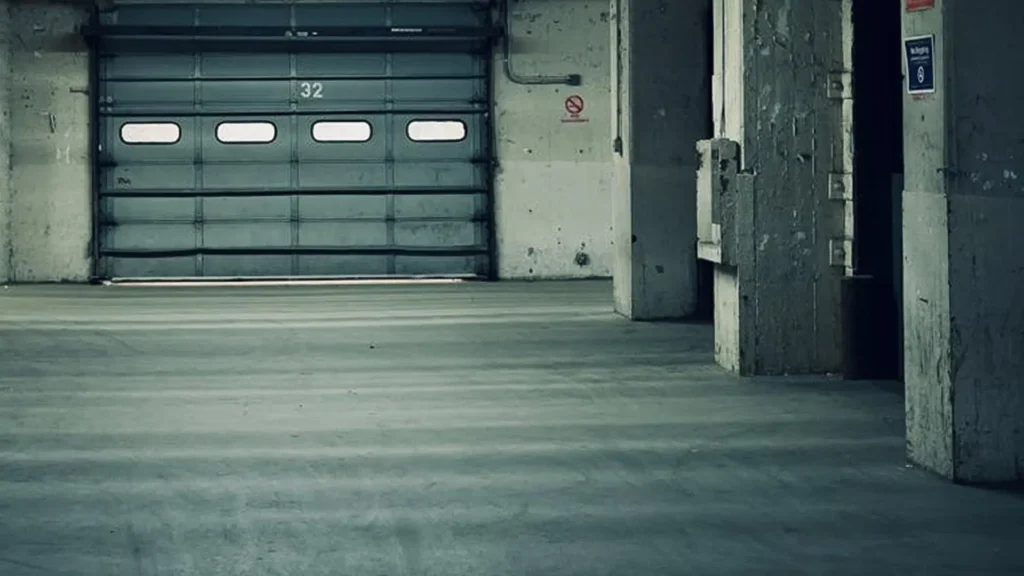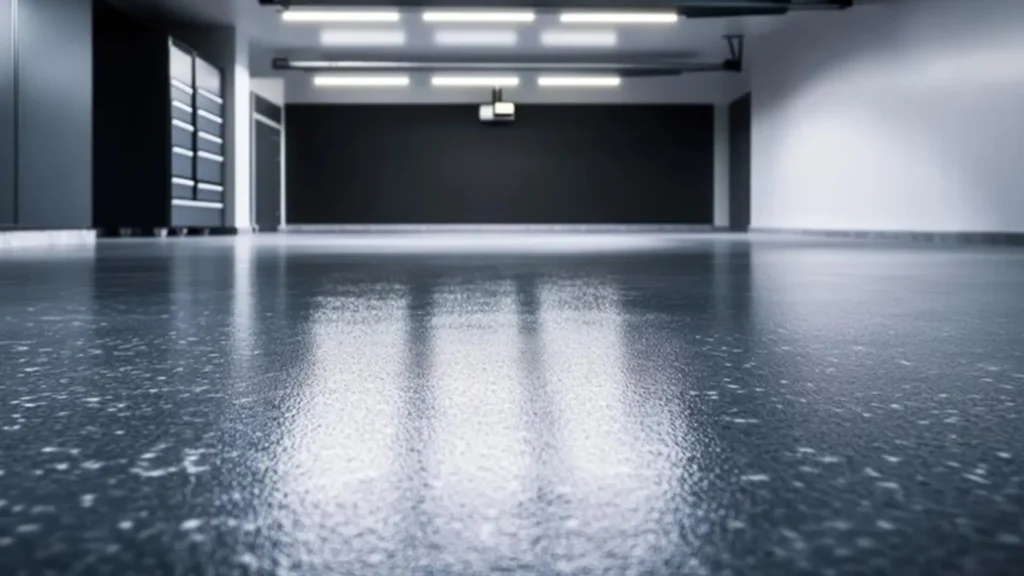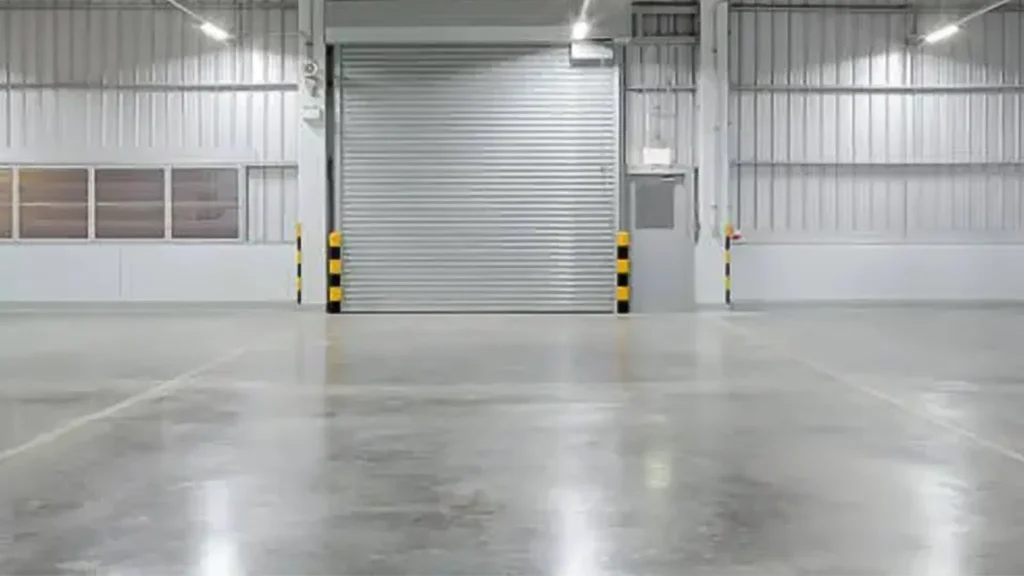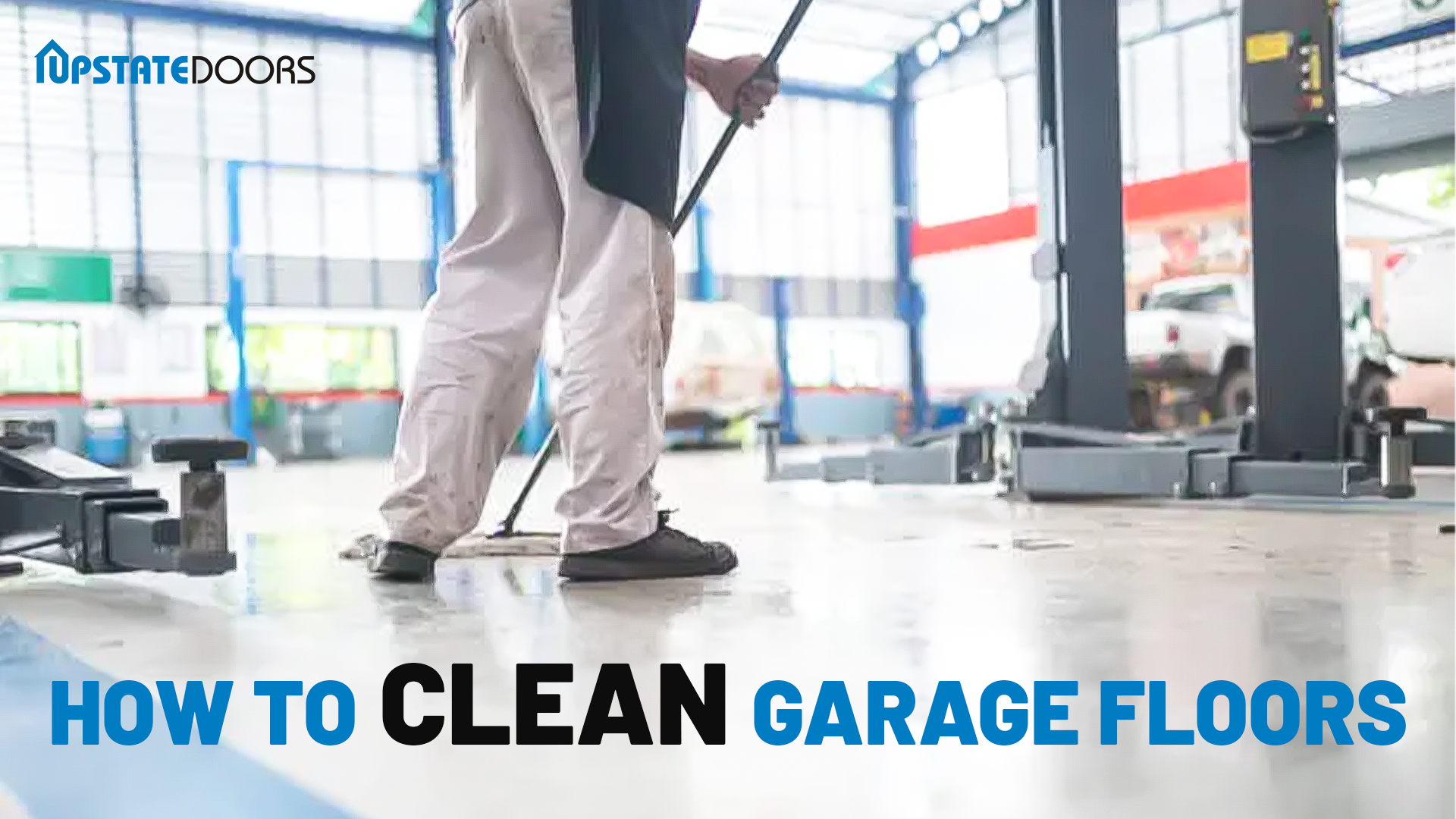Your garage floor puts up with a lot—oil drips, muddy shoes, chemical spills, sawdust, and road salt. Over time, that grime builds up.
Therefore, without cleaning a garage floor, it turns into a stained, slippery mess. But with the right approach, you can restore any garage floor—concrete, cement, or epoxy—to a clean, safe, and solid surface.
In this guide, you’ll find pro-level methods for how to clean garage floors no matter the floor type and cleaning with or without a pressure washer. We’ll also cover the best garage floor cleaners, stain removal hacks, and how often you should clean your garage floor. Let’s get to it.
Why Cleaning Your Garage Floor Matters
Before jumping into the cleaning process, let’s first talk about why keeping your garage floor clean is so important. The garage sees a lot of action—oil spills, dirt from your car, tire marks, and even salt during winter. Keeping it clean isn’t just about aesthetics—it also
- Extends the life of your flooring
- Reduces slipping hazards
- Prevents buildup of chemicals and oils
- Improves air quality
According to a 2023 report by the National Association of Home Builders,
Over 60% of homeowners said their garage is the most neglected area of the house.
Yet, it’s the first space you often see when you come home. Keeping it clean not only extends the life of the floor but also improves home value.
The National Home Cleanliness Institute report says,
76% of homeowners reported fewer pest problems after regular garage cleaning. That’s not just about the corners—floors matter.
How to Clean Garage Floor: Methods for Different Floor Types
Not all garage floors are created equal. Cleaning methods vary depending on whether you have plain concrete, cement, or epoxy coating. Using the wrong technique can cause permanent damage—like peeling epoxy or stained concrete.
So, we’ll be showing methods for how to handle each floor type the right way.
How to Clean a Concrete Garage Floor

For this, you’ll need:
- Stiff bristle broom
- Degreaser or dish soap
- Hot water
- Scrub brush or deck brush
Let’s start the steps-
- Sweep debris and dust. Start by thoroughly sweeping your floor and the ceiling to get rid of loose dirt, leaves, and debris. Yes, make sure to dust the ceiling also. This clears the surface and prevents spreading grime around when you start scrubbing.
- Mix degreaser with hot water. In a bucket, combine a garage-specific degreaser (or dishwashing liquid) with hot water. Hot water helps break down oils and grime more effectively.
- Pour over stained areas. Target stained or heavily soiled areas by pouring the solution directly on them. Don’t flood the whole floor—focus on the most where it’s needed.
- Scrub well. Let it sit for 15 minutes. Use a stiff scrub brush or deck brush to work the solution into the floor. Let it sit for 15 minutes to give the cleaner time to break down the grime.
- Rinse with a hose or mop. Rinse off the cleaner with a garden hose. If you don’t have one nearby, mop up the mess using clean water. Always work from the back of the garage toward the door.
Pro tip: Use white vinegar mixed with water (1:1) to tackle mineral buildup or salt stains.
How to Clean an Epoxy Garage Floor

For this, you’ll need:
- Microfiber mop
- Ammonia-based solution (1/2 cup ammonia to 1 gallon water)
- Soft brush
Let’s do it now-
- Sweep or vacuum. Remove dust and grit using a soft broom or vacuum. Grit can scratch the epoxy coating if dragged around during cleaning.
- Mop gently with the solution. Mix ammonia with water in a bucket. Using a microfiber mop, go over the surface without applying too much pressure. This method lifts dirt without dulling the shine.
- Rinse with clean water. Air-dry. After mopping, rinse the floor with plain water to remove any cleaner residue. Open your garage door for better airflow and faster drying.
Avoid vinegar and citrus cleaners. They can break down epoxy coatings over time and dull the finish.
How to Clean a Cement Garage Floor

Cement is similar to concrete but can be rougher and more porous, making it easier to trap dirt and stains.
Approach:
- Sweep thoroughly. Cement floors need a solid sweep with a heavy-duty broom to remove all loose dirt and debris.
- Use a degreaser. Apply a degreaser to any spots or spills, especially if oil or grease is present.
- Scrub with a wire brush for deep stains. A wire brush is ideal for working into the rough texture of cement and pulling up embedded grime.
- Rinse well. Hose it down or mop it clean, making sure no residue is left behind.
Tip: If you have a leaf blower, use it to speed up drying.
How to Clean Garage Floor With Pressure Washer
Using a pressure washer can make the job faster and more efficient, especially if you’ve got a lot of surface area to cover. Here’s how to use one effectively:
- Sweep first. Don’t skip sweeping. Pressure washing dirt without clearing debris first just pushes grit around.
- Pre-treat with degreaser. Apply a degreaser to oil spots or dirty areas before washing. This helps lift stains the water pressure alone might miss.
- Let it soak 10–15 minutes. Give the degreaser time to work. Waiting a bit makes a big difference in effectiveness.
- Use a 25-degree nozzle for washing. A 25-degree nozzle provides the right balance of pressure and surface coverage without damaging your floor. Also, keep the nozzle at least 18 inches from the floor to prevent damage
- Work in small sections. Move in grid-like passes. This ensures even cleaning and prevents streaking.
Note: Avoid zero-degree nozzles—they’re too harsh and can damage the floor, especially coatings or epoxy.
How to Clean Garage Floor Without Pressure Washer
If you don’t have a pressure washer, don’t worry! You can still get your garage floor clean without it. Here’s a simple, step-by-step process you can follow:
- Clear the Area: Remove all items from the garage floor.
- Sweep Thoroughly Use a stiff-bristled broom to eliminate loose dirt and debris.
- Apply Cleaning Solution: Mix a degreaser or a combination of warm water and mild detergent. Apply it to the floor, focusing on stained areas.
- Scrub the Floor: Use a scrub brush or broom to work the solution into the floor.
- Rinse and Dry: Rinse with clean water and use a mop or squeegee to remove excess water.
Tips: For stubborn stains, a mixture of baking soda and water can be effective. Apply the paste to the stain, let it sit for 15 minutes, then scrub and rinse.
Common Garage Floor Stains and How to Tackle Them
Here are some tips and tricks for removing stains while cleaning garage floors.
Oil:
- Sprinkle with cat litter or sawdust. These absorbents draw up fresh oil and prevent it from spreading.
- Leave overnight. The longer it sits, the more oil it pulls up.
- Sweep and scrub with degreaser. Sweep up the absorbent, apply degreaser, and scrub thoroughly.
A mix of Dawn dish soap, baking soda, and boiling water works great in removing oil stains.
Grease Stains:
Similar to oil stains, grease stains require a degreaser.
For light stains: Mix warm water with dish soap and scrub.
For heavy stains: Apply a heavy-duty degreaser, let it sit for a few minutes, then scrub and rinse.
Rust:
- Apply lemon juice + baking soda paste. This combo creates a mild acid that loosens rust.
- Let it sit 10 minutes. Scrub. Give it time to work, then scrub with a stiff brush and rinse.
Paint:
- Use paint stripper (for concrete). Apply carefully to avoid damaging the surface.
- Scrape gently. Rinse well. Use a plastic scraper to avoid gouging. Rinse to remove residue.
Tire Marks:
For stubborn tire marks,
- Use any concrete cleaner or a mixture of white vinegar and water.
- Apply it directly to the marks, scrub, and rinse.
For heavy-duty stain removal, try trisodium phosphate (TSP), but follow all safety precautions. It’s powerful but requires proper ventilation and gloves.
How Often to Clean Garage Floors?
- Light use (storage only): Twice a year
- Medium use (occasional car parking): Every 2-3 months
- Heavy use (daily vehicle use, work area): Monthly
Regular sweeping helps reduce buildup. Deep cleaning can be scheduled based on floor condition and use.
Best Garage Floor Cleaners
If you don’t want to take the hassle of making any cleaning solution, you can use a good floor cleaner. Here are some of the best cleaners for various types of garage floors:
| Cleaner | Best For | Notes |
| Simple Green | All-purpose | Safe and biodegradable |
| Oil Eater | Grease/oil | Industrial strength |
| Zep Concrete Cleaner | Heavy-duty stains | Strong formula |
| Baking Soda + Vinegar | Eco option | Not for epoxy floors |
When choosing a cleaner, make sure it’s suitable for your floor type. Concrete floors may need a more specialized cleaner, while a mild all-purpose cleaner will work well for general cleaning.
Conclusion
Now that you know how to clean garage floors, it will no longer be a vast chore. Just make sure to use the right cleaning solution according to your garage floor type, and voila!
With a little effort and the right techniques, you can transform your garage from a dusty disaster zone into a clean and functional space. Now go forth and make that floor shine!
Besides, if you need professional help with garage floor cleaning, contact us to book your schedule anytime and attend your important meetings.
FAQs
What Is the Easiest Way to Clean a Garage Floor?
The easiest way to clean a garage floor is by sweeping it thoroughly to remove dust and debris, then mopping it with a mild cleaner or a degreaser. For tougher stains, a degreaser will help break down the grime. You can also use a soft scrub brush for a more thorough clean.
What Is the Best Liquid to Clean a Garage Floor?
The best liquid cleaner for your garage floor depends on the floor material. For most floors, a general-purpose cleaner or degreaser will work. For tough stains, a concrete-specific cleaner like Simple Green Oxy Solve or Oil Eater Degreaser is ideal.
How Do You Clean a Concrete Garage Floor Without a Pressure Washer?
If you don’t have a pressure washer, just sweep the floor first, apply a degreaser or a mild soap solution, scrub the floor thoroughly, and rinse with clean water. For stubborn stains, using a paste made from baking soda and water can help.


